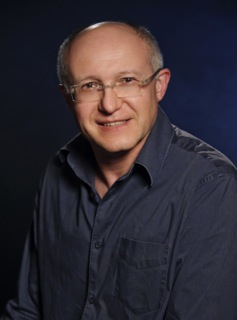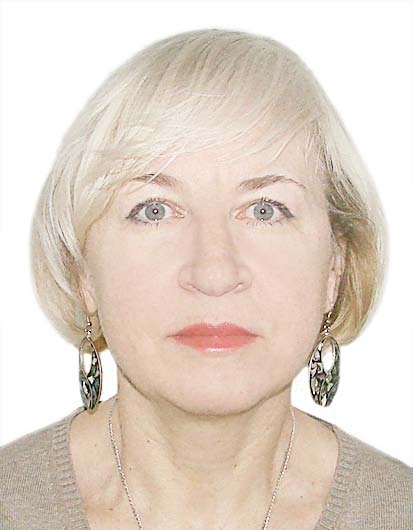Keynote Speakers

Prof. Peter Strasser
University for Continuing Education Krems, Austria
Peter Strasser studied Austrian law, European ethnology, human rights as well as humanitarian law at the universities of Innsbruck/Austria and Nottingham/UK. (Mag.iur 1989, Mag.phil. 1992, Dr.iur 1994, LL.M. 1995, Dr.phil. 2018).
After practical legal training at different courts in Vienna, he joined the Ministry of Interior in Vienna as legal adviser (1993-1996) and worked as volunteer in an ethnological museum. Since 1997 he served in several international organizations in the field of (World) cultural heritage and cultural property protection. (UNESCO/Paris, IOM/Tirana, EU/Bucharest, OSCE/Kosovo) During these assignments he had the opportunity to join several working groups for the drafting of international legal instruments for the protection of cultural property. After 2008 he worked as adviser for World Heritage in the Federal Ministry for Education, the Arts and Culture in Vienna.
In 2012 he joined University for Continuing Education Krems as scientist in the field of cultural heritage and in 2015 he became the head of the then newly created Center for Cultural Property Protection at that University. Between 2019 and 2022 he was seconded to the OSCE – Mission in Kosovo as Senior Adviser for cultural heritage protection.
In August 2022 he was appointed as Professor for World Heritage and Cultural Property Protection at the University for Continuing Education Krems. In his research he puts emphasis on the international dimension of cultural heritage protection with focus on sustainability and legal issues. He is author of some 200 publications in the field of cultural heritage protection, heritage legislation, and ethnology. Furthermore, he was member of several working groups for the nomination of World Heritage properties and of the working group on World Heritage of the Alpine Convention. He is member of the University’s Committee for Equality Issues.
Speech Title: The other side of the coin. How to exhibit
contested aspects of cultural heritage? Reflections on approaches undertaken
at the European Capital of Culture 2024 Salzkammergut/Bad Ischl
Abstract: “Arty and shiny” – These categories represent often
cultural heritage: Not only noble castles and impressive churches, but also
“masterpieces” of works of art attract millions of visitors and become
“immortal” thanks to well-established academic reception and touristic
promotion. Moreover, their todays’ presence in social media create not only
a globally accepted portfolio of “must visits”, but also – e.g. Instagram –
cause visitor-“hypes” at certain sites which are followed by overtourism.
Finally, UNESCO, who is claiming to protect the natural and cultural
heritage for the next generations, create with its different Lists
heritage-categories like “must see” and “normal – just forget it”.
But is heritage per se “good”, “sublime” and “unquestionable”? It was again
UNESCO’s World Heritage which put “dark heritage” “in front of the curtain”
and raised “inconvenient” and contested aspects of cultural heritage. The
World Heritage List contains examples of “bad heritage”: already during the
second inscription cycle of World Heritage properties, 1979, Poland’s
proposal “Auschwitz Birkenau German Nazi Concentration and Extermination
Camp (1940-1945)” was inscribed in the List. There are other examples in the
List which caused controversial positions among the concerned states and
within the World Heritage Committee (which has to make the final decisions
on descriptions). Moreover, UNESCO’s programme “Memory of the World” faced
an interruption and re-consideration after the nomination of documents for
inscription which refer to events in the past in East Asia with highly
controversial interpretation (Nanjing Massacre). Therefore, with regard to
all kind of cultural heritage and its related past: the one’s victory is the
others defeat, the one’s achievement is the other’s failure.
Austria’s contested and controversial past covers less a colonial context
but refers dominantly to the totalitarian regimes during the 1930ies and
1940ies. Consequently, to interpret and exhibit aspects of that time
requires sensitive approaches. And these issues – whether exhibited or not –
still cause debates between different the sides of historians. These
approaches were not “automatically implemented”, but developed from the
conclusion, that Austria’s past is not only “sweet and nice” and does not
only consist of monuments from the Habsburg Monarchy, music from Mozart and
Beethoven and sweet cakes.
The European Capital of Culture 2024 Salzkammergut/Bad Ischl offers the
opportunity to reflect on dark aspects regarding art robbery in the wide
context of injustice, like the Holocaust, expropriation of private
collections (mainly of Jewish’s ownership) and war-related looting of
foreign museums, collections, and churches for the sake of the planned
“Führermuseum” in Linz (“Museum of Hitler’s art collection”).
Previous exhibitions in the context of stolen art undertaken in the 1970ies
and 1980ies in Austria just referred to positive aspects of how the then,
1945, biggest (stolen) art collection in Europe was brought to the safe
heaven in the saltmines in the Salzkammergut and was rescued in the last
minute – one remembers the movie “Monuments Men”.
However, the present exhibitions in the Lentos Museum in Linz (which itself
refers to a contested past concerning its art collection) and in different
places in the Salzkammergut offer a more balanced and broader view by not
ignoring contested aspects: the dimension of the Holocaust in Europe, the
background why all kind of artefacts were robbed (not only to create a
museum for Hitler art collection, but it was also the greed of the whole
Nazi elite to bring everything under their control), the role of art-dealers
and of research-institutions during the Nazi period as well as Austria’s
legislation after 1945 which made it often practically impossible for the
previous owners (resp. their relatives) to recover their stolen goods.
However, the present exhibitions do not only reflect about the past, but
also demonstrate, how modern art and performances can contribute to the
discourse about ongoing cases of “cultural cleansing”. Finally, an
exhibition shows how peaceful settlement and reconciliation with the victims
(and their descendants) can be achieved. Good will and mutual trust can
contribute to mitigate the wounds of the past and turn the dark side of
cultural heritage into a contribution (or at least attempt) to promote late
justice.
Professor Peter Strasser is head of the Jiří Toman Center for Cultural
Heritage and Humanitarian Norms at the University for Continuous Education
Krems in Austria. He obtained PhDs in Law and in European Ethnology and
worked for many years for UNESCO and for OSCE (Mission in Kosovo) in the
fields of human rights, World Heritage and cultural property protection.
(https://www.donau-uni.ac.at/en/university/faculties/education-arts-architecture/departments/building-environment/ji%C5%99%C3%AD-toman-center.html
)

Professor Emeritus Mladen Milicevic
Loyola Marymount University, Los Angeles, USA
Mladen Milicevic received a B.A. (1982) and an M.A. (1986) in music composition and multimedia arts studying at The Music Academy of Sarajevo, in his native Bosnia-Herzegovina. In 1986 Mr. Milicevic came to the United States to study with Alvin Lucier at Wesleyan University in Connecticut, from which he received his masters in experimental music composition (1988). From the University of Miami in Florida, Mr. Milicevic received his doctorate in music composition in 1991, studying with Dennis Kam. For several summers, he also studied with Michael Czajkowski at the Aspen Music School. He was awarded numerous music prizes for his compositions in the former Yugoslavia as well as in Europe. Working in his homeland as a freelance composer for ten years, he composed for theater, films, radio, and television, also receiving several prizes for this body of work. Since he moved to the United States in 1986, Mr. Milicevic has performed his live electronic music, composed for modern dances, made several experimental animated films and videos, set up installations and video sculptures, had exhibitions of his paintings, and scored for films. His academic interests are interdisciplinary, and he has made many presentations at various international conferences on a wide range of topics such as music, film, aesthetics, semiology, sociology, education, artificial intelligence, religion, and cultural studies. Bizarrely enough, in 2003 he has scored film The Room which has now become an international phenomenon as the “worst” film ever made. Since 2023 Mr. Milicevic is Professor Emeritus of the Recording Arts Department at Loyola Marymount University, Los Angeles. There, he has been the Chair of the Recording Arts Department for 11 years, and in 2019 he stepped down from that position to become the first faculty member at Loyola Marymount University who teaches 100% online classes. Now Dr. Milicevic’s primary educational interest is focused on online teaching modalities.
Speech Title: The Current A.I. Possibilities in Music
Production
Abstract: Artificial Intelligence technology has now enormously
altered the way musicians create and consume music. Artificial intelligence
has promptly begun to change the way people create and consume music. As
music making becomes more and more democratized and music creation tools get
easily accessible to virtually everyone, AI offers an inexpensive substitute
to long-established traditional way of music creation, permitting
unestablished musicians to create their songs from the privacy of their own
homes. AI apps can assist in writing lyrics, generating melodies, creating
song structure, mastering music tracks or whatever else one might need. AI
is making it simpler than ever to create and publish music on streaming
platforms such as Spotify and Apple Music. Streaming companies have been
employing AI to set up custom recommendations, new track suggestions, as
well as to create customer’s personalized playlists. Spotify's algorithmic
playlists rely on AI to base their recommendations on user listening history
and activity. Employing AI in every aspect of music making might substitute
person's individual creativity and talent, rendering music with apparent
lack of originality. However, AI tools might still provide convenient
inspiration and an interesting and inspiring starting point for some aspects
of music creation while affording the artists with a solid foundation for
music composition to start working with. "Music Business Worldwide" recently
reported that more than 1,000 songs with AI-generated vocals have been
released by Tencent Music in China - with one of them achieving up over 100
million streams. In addition, the generative artificial intelligence models
such as Suno and Udio that produce music based on simple text prompts, made
huge waves in 2024.
In my presentation, I am going examine some of the AI music making tools and
show how much things have rapidly changed from 2023 to 2024.

Professor Tatiana Ivushkina
MGIMO University, Russia
Tatiana Ivushkina is a Professor at Moscow State Institute of Foreign Affairs (MGIMO-University), Russia. She got her Candidate degree (PhD) in Philology from Moscow State University for the thesis "Stylization in Modern English Literature Speech Portrayals"and Doctoral degree (advanced PhD) from Moscow State University for the thesis «Socio-linguistic Aspects of English Speech Development (in speech portrayals of the upper classes of Great Britain in the 19-20th c. English Literature)». Her research interests are social linguistics, stylistics, stylization in speech portrayals, upper-class speech, English & American literature and culture, innovative methods of teaching and intercultural communication. She is an executive secretary and editor of the journal "Philology at MGIMO" and author of articles in refereed journals and international conference proceedings.
Speech Title: The Upper class sociolect through
literature
Abstract: In the focus of the talk are the peculiarities of the
upper class language, or sociolect, which are of a subtle nature, do
not lie on the surface and are often lost upon the reader
/interlocutor. Education and knowledge of foreign languages obtained
at prestigious universities give their graduates advantages over
others in using borrowings to the best advantage, abstract words and
phrases, play upon words expressed in different forms, and
allusions, a powerful means of consolidating those who belong. The
analysis of 21st century British literature has proved that social
status of an upper class representative can be expressed both
explicitly and implicitly when literariness is a social meaning
maker. The analysis has also proved the relevance of the study and
the stability of social markers.
.
